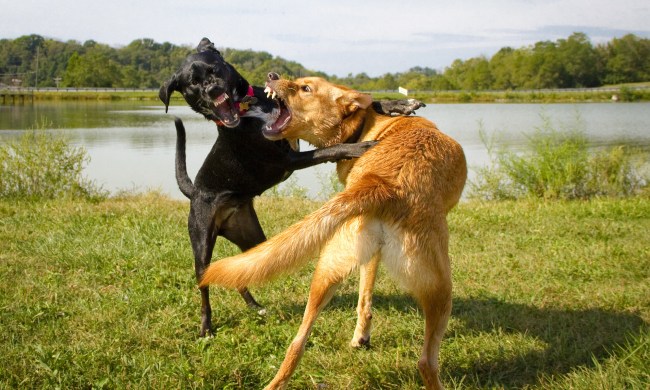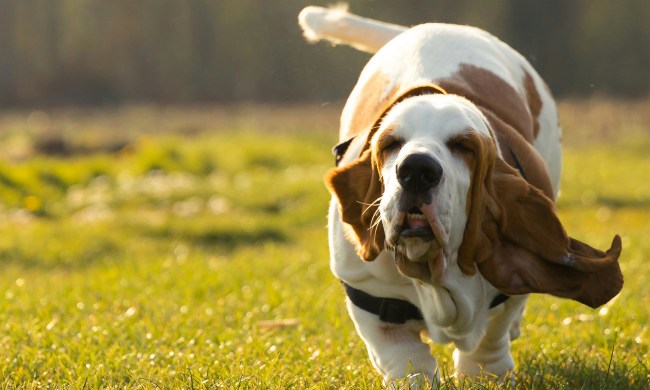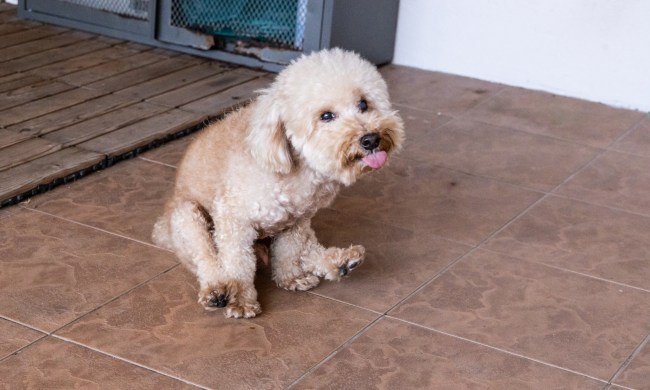Bulldogs are one of the most recognizable breeds in the world. They’re also one of the most popular. So popular, in fact, that 15 college football teams call this affable, wrinkled pup their mascot. When asked to describe their English bulldog, most pet parents use words like “sweet,” “friendly,” and even “silly.” But there’s yet another word that’s frequently applied to these good-natured pups: “stubborn.” Thankfully, bulldogs aren’t as difficult to train as you might be expecting. We’ve consulted the experts and compiled everything you need to know about English bulldog training in one article. Here’s how to take your pooch from willful to well-trained in a few simple steps.
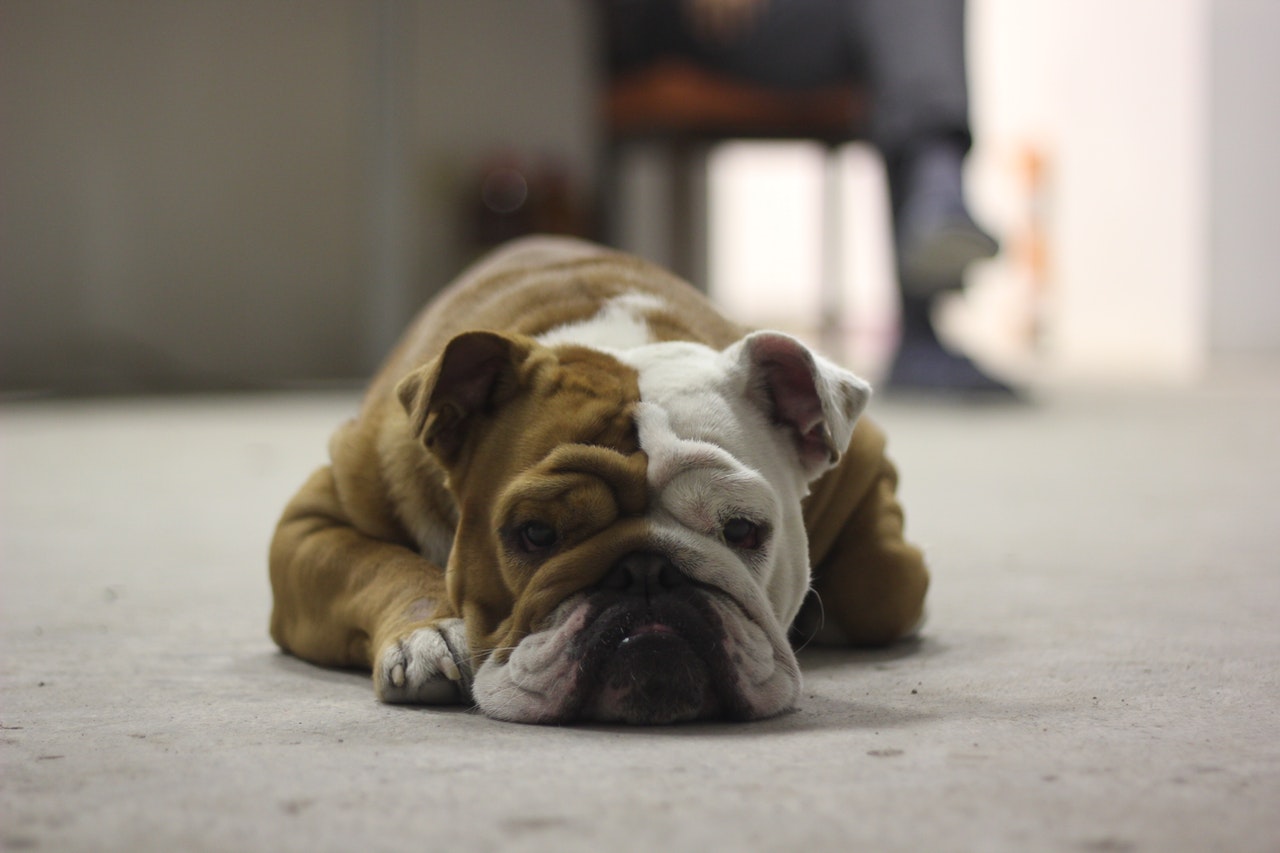
How long does it take to potty train an English bulldog?
Training an English bulldog to obey any command takes time and effort. Just like some human children learn new skills quickly, some dogs pick up new commands with ease. On the flip side, some dogs – like some children – require a bit more time before they master a new ability. When it comes to potty training, teaching your pup to “sit” and “stay,” or any other trick you’d like your dog to learn, we recommend following the American Kennel Club (AKC) training timeline. Not only does the AKC factor in your puppy’s stage of development, but the experts who crafted it can give you some idea of what you can expect from your dog at each stage. Here’s a brief rundown.
Cleaning your pup’s wrinkles is important
You should begin training your dog to tolerate bath time as soon as you bring him home. Your bulldog’s wrinkles are absolutely adorable, but they’ll need constant cleaning to prevent infection. Yeast, nasty bacteria, and debris tend to settle in the folds, so you should clean your bulldog’s face each day, especially after playtime and meals. It’s also recommended that you clean your bulldog’s wrinkles from nose to tail once a week. If you make bathing your pup an enjoyable experience from an early age, you’ll save yourself a lot of bath time woes in the future.
Make sure your fur baby makes friends
According to the pros at the College of Veterinary Medicine & Biomedical Sciences at Texas A&M University, you should focus on socializing your pooch during this stage of development. If dogs aren’t properly socialized from a young age, they might grow up to be fearful of other animals, new locations, and strangers. Unfortunately, fearfulness can lead to aggressive behavior, so it’s vitally important to make sure your dog associates new people and other dogs with positive experiences.
A housebroken puppy makes for a clean, happy home
When your bulldog puppy reaches the 12 to 16 week mark, you can begin potty training in earnest. While some say you should begin potty training when puppies are younger, many experts believe these lessons have a better chance of sticking with your pup if she’s a bit older. Not only does your puppy’s attention span improve as she grows, but her ability to control her bladder strengthens, too. It takes approximately four to six months to completely potty train a bulldog puppy, though the process may last a shorter – or longer – duration depending on your dog.
Obedience training should start early
You shouldn’t expect a young puppy to master a complex trick. Simple training sessions, such as teaching your fur baby not to chew on your shoes or engage in aggressive play, can begin around the 12 to 16-week mark. Because bulldogs tend to pack on weight easily, you’ll want to try rewarding your dog with positive reinforcement instead of treats.

How do I discipline my English bulldog puppy?
Disciplining your puppy can be difficult. It’s just so hard to look into their big, sad eyes and tell him, “No.” Unfortunately, leaving a dog untrained won’t just lead to a messy, chaotic household – it could also put your dog in danger. Teaching your pup not to eat garbage (or other nonfood items) is paramount to his safety, but that doesn’t mean you should punish your dog by shouting at him.
According to professional trainers, you actually shouldn’t punish your dog at all. Dogs don’t understand why they’re being punished. What they do know is that their pet parent is frightening them, which can actually lead them to misbehave more often than they already do. Your puppy isn’t trying to be naughty. He’s simply exploring the world the way he knows best: with his mouth.
So, how should you discipline your puppy? Experts say you should tell him, “No,” in a firm voice if you catch him in the act. If that fails, redirect his attention using a noise device like a shake can. (Some puppies become anxious in response to loud noises. If your dog is one of them, discontinue your use of the shake can and switch to an alternative method, such as distracting your pup from chewing on your shoes with a pet-safe chew toy.)
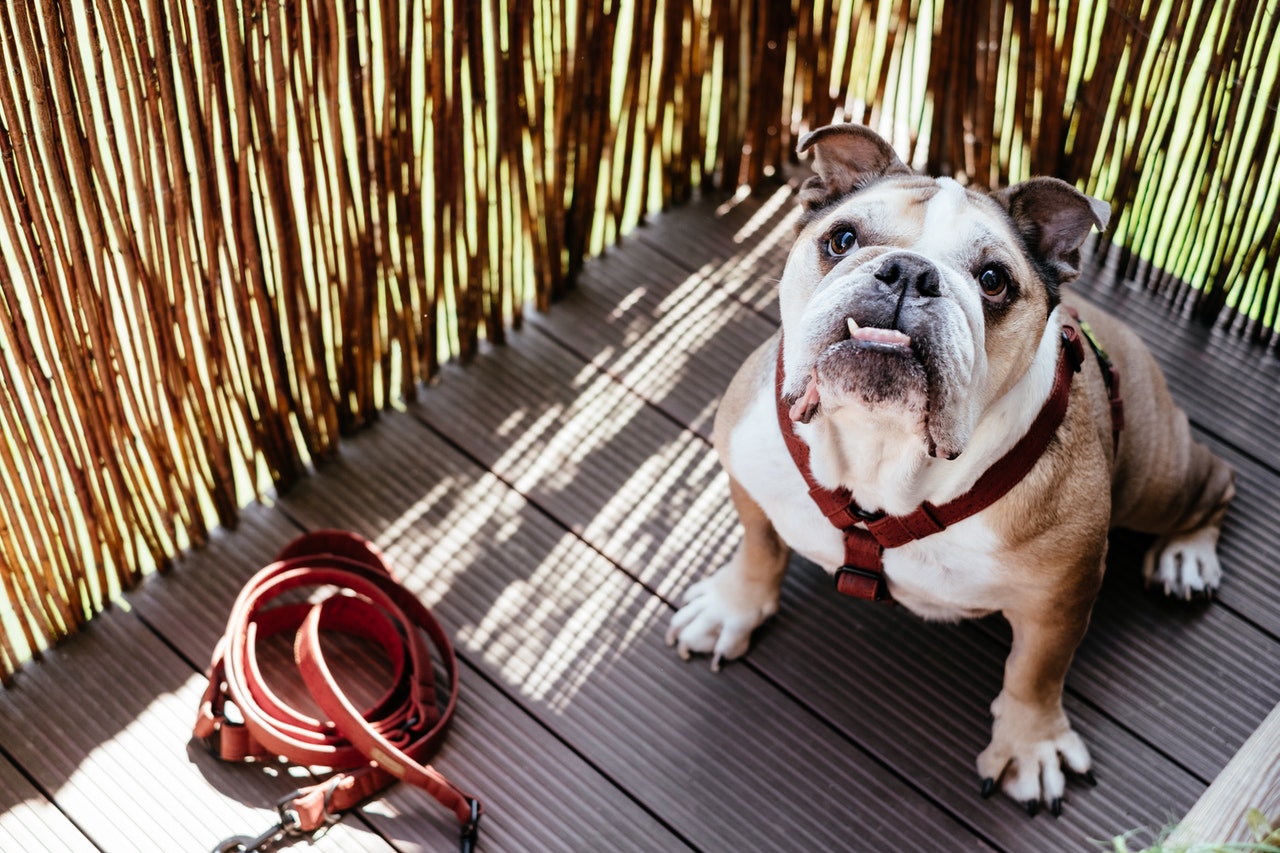
Training any dog requires consistency, time, and effort. Even notoriously stubborn breeds like English bulldogs respond to firm rules, a strict schedule, and being rewarded with lots of praise and affection. But don’t give up hope if your English bulldog completely ignores you. Bulldogs are more likely to be deaf than other breeds, so you may need to teach him using hand signals.

